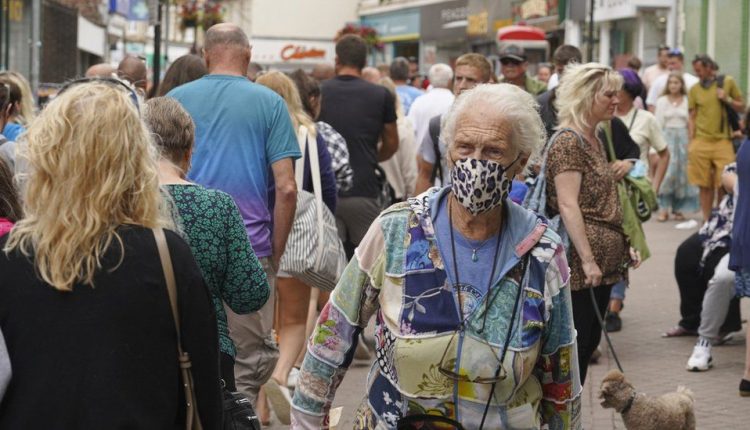Covid cases: This summer compared with last
This time last year, the UK was slowly taking its first small steps into what would become the second wave of Covid-19.
That led to tighter local restrictions and, ultimately, lockdowns across all the nations, which didn’t start to unravel until late spring 2021.
Case numbers now are more than 30 times higher than at the same point last year and are showing signs of climbing again.
So what does this all mean and where might we be heading?
“They sort of levelled off but are drifting up again and they’re drifting up in summer when viruses spread less readily.”
2020 vs 2021
Let’s compare 20 August with this time last year.
Case numbers are much higher now, at 37,314 this year, compared with 1,182 a year ago.
The numbers admitted to hospital or dying are also both higher than last year. However, this still reflects how far we’ve come with vaccination – if there had been 37,000 cases a day last summer it would have had a severe impact on the NHS. Instead jabs are saving lives.
The number of reported cases also means something different today. Last year almost every positive case was a person with a cough, fever or loss of sense of smell or taste.
Now, because of increased testing for events and trips abroad, we’re picking up people without symptoms, too. Again, that’s down to the success of the vaccine programme.
What really matters now is the number of people becoming so ill that they need hospital treatment.
“It wouldn’t matter a jot if Covid caused a million cases a month if it didn’t make anybody sick. It’s the actual illnesses which have to drive what we do next,” said Prof Paul Hunter, from the University of East Anglia.

Case numbers defied predictions
At the start of summer, we were warned that the lifting of restrictions, particularly those in England on 19 July, could lead to an increase in cases.
But that didn’t happen and that’s why some might be surprised by the figures we’re seeing at the moment.
Prof Hunter said: “Pretty much everybody was predicting that cases would rocket and they fell.
“They sort of levelled off but are drifting up again and they’re drifting up in summer when viruses spread less readily.”
There is concern about what will happen in the autumn.
Schools have already gone back in Scotland and the rest of the UK will follow in the coming weeks. More people could be returning to the office over the next few months, and as the weather turns, we’ll spend more time inside, where it is easier for the virus to spread.
All this could lead to an increase in cases as we head into winter – and we are starting off from a much higher level than last year.

image sourceGetty/Hugh R Hastings
But might we be nearing the end?
Prof Hunter feels we are, finally, nearing the “endemic equilibrium” – the point where cases are neither increasing nor falling.
That’s because a large proportion of the UK population has developed a degree of protection against the virus.
Office of National Statistics figures show more than nine in 10 adults in the UK now have antibodies to coronavirus, either through vaccination or having been infected with the virus.
Prof Hunter said: “I’m very confident that we’re not going to see anything like the amount of disease we saw last time round [in the autumn].
“But it doesn’t mean that if we went back to living how we did two years ago that we won’t see cases increasing.”
However, while the UK as a whole could be approaching equilibrium, not everywhere will get there at the same time.
Northern Ireland has just recorded its highest number of cases in a single day since the pandemic began, and Prof Hunter says it’s the places that have experienced the least amount of disease to date that are now having more.
But there are still many variables at play here which could alter things.
With something as infectious as the Delta variant, it’s really hard to know for certain what will happen next.


Comments are closed.